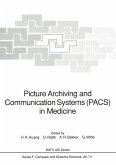
eBook, PDF
18. Januar 2011
Springer London
| Broschiertes Buch | ab 32,99 € | |
| Gebundenes Buch | 40,99 € |

eBook, PDF
9. März 2013
Springer New York
| Broschiertes Buch | 93,99 € | |
| Gebundenes Buch | 79,99 € |
Ähnliche Artikel

eBook, PDF
2. September 2016
Springer International Publishing

eBook, PDF
26. Juli 2018
Springer International Publishing

eBook, PDF
29. Juni 2013
Springer Berlin Heidelberg

eBook, PDF
17. Juli 2020
Springer International Publishing

eBook, PDF
21. März 2016
Springer International Publishing

eBook, PDF
8. Oktober 2015
Springer London


eBook, PDF
27. August 2019
Springer International Publishing


eBook, PDF
6. Januar 2016
Springer International Publishing
Ähnlichkeitssuche: Fact®Finder von OMIKRON
